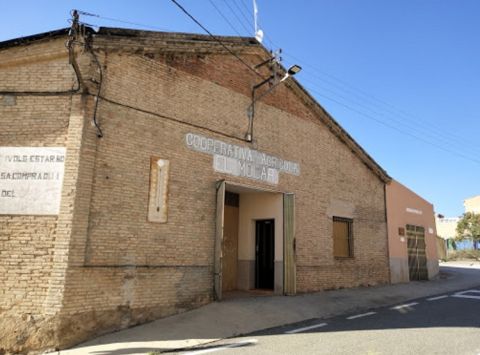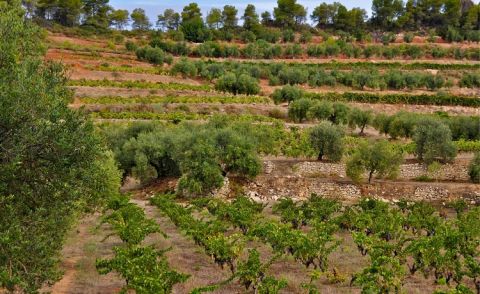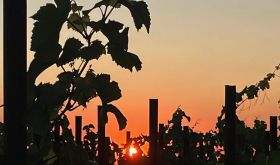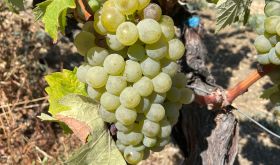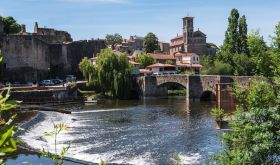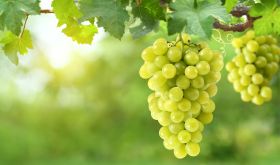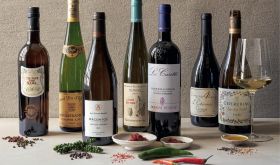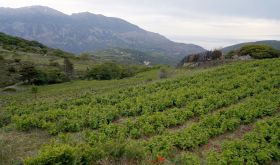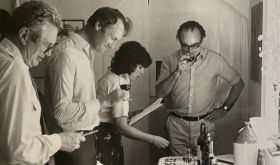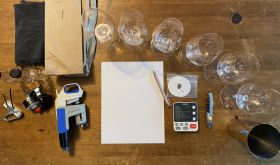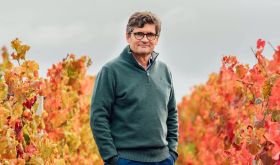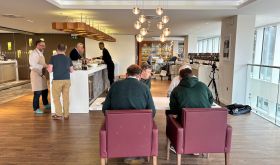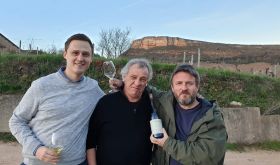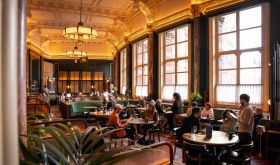Joan Asens, one of the four farmers who, a few years back, created Orto Vins (D.O. Montsant), told me that they got together to make wine out of the grapes they grew and to change the way their parents had farmed their vineyards: ‘They were using conventional agriculture and we steered it towards biodynamics.’ Currently all of their crops are registered as ecological agriculture and they continue to employ biodynamic and regenerative agriculture practices.
Even though the winery is small, they produce from 50,000 to 60,000 kg of grapes per year, offering a selection of 15 different wines. Besides them four, there is a cellarman who works throughout the year and, at harvest time, a support assistant. Everybody is more than satisfied with their wages and the cellarman says there has always been a very friendly work environment.
They don’t even have their own cellar, so they make their wine in the cooperative winery El Molar. It was built in the early 20th century with underground storage space that enables them to keep the wine cool during the summer, preserving it from the heat. Bearing in mind that the cellar is shared, that it doesn’t need refrigeration, that the machinery is of a low power usage, and even the lighting is energy-efficient, it allows the total energy consumption to stay under 5 Kw.
The same goes for transportation, given that D.O. Montsant provides shared transport and machinery use amongst other small wineries which helps keep the cost down. These costs are covered with the income from the sales of their wines that mainly take place in Catalonia (75%), add another 5% from the rest of Spain and the rest is exported; 5% to Japan, another 5% to Switzerland and the remaining 10% to the U.S.A.
Only two types of bottles are used, the Burgundy Tradition model, of 560g, for the basic range of wines, of which they buy 35.000 each year; and the Burgundy Domaine model, of 600g, (5,000 units) for the wines that have to spend more time in the bottle. Their wines are always sealed with a cork and packaged in FSC certificate cardboard boxes for 6 or 12 bottles.
Orto Vins is waiting for the results of the Life project, therefore at the time of writing this article we don’t know what their carbon footprint is. However the company assured me that everything is done, ‘so that the energy consumption is as low as possible’.
Due to their high recyclability, paper and cardboard are an essential part in their production. Even the packaging they have to dispose of and the packaging they receive from other suppliers are taken away by companies that specialize in recycling. The stems and part of the plant debris are also recycled as compost.
They use natural and ecological products on their crops such as horse tail, nettle or biodynamic preparations. Because of the use of biodynamic agriculture their farms never have more than 75% of their main crop, which is usually vineyards, so they share it with other crops such as almond and olive trees, as well as rosemary, broom and fennel.
They feel it's crucial to watch over the microbiology of the soil and apply biodynamic preparations as well as microbiological culture: ‘The soil is a very important part in the quality of the end product and we need to work it, so that the microbiology and its properties don’t worsen. This way we nurture it with biodynamic compost that we ourselves do, and with mineral and microbiological additions’. Furthermore, they desist in watering the crops to improve the quality of the grapes, with the exception of very young vineyards.
They use the self-supporting Gobelet system for their vines. If in need of vine training they always rely on raffia fibres, a natural product which is used to tie up the cordons instead of wires. No plastic at all is used in the vineyard and in the office its use is restricted.
They have the ecological agriculture certification, and with regards to biodynamics, they are about to join Nicolas Joly’s group, Renaissance des Appellations.


